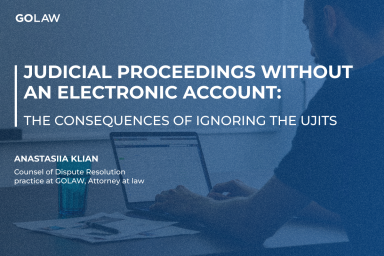Crimes against humanity in Ukraine: Distinction from war crimes and challenges in bringing perpetrators to accountability
Contents
As the Russian-Ukrainian war rages on, human rights are being devastatingly violated with each passing day. Since the beginning of the full-scale invasion, Ukrainian law enforcement agencies have documented over 70,000 war crimes.
The UN Independent International Commission of Inquiry on Ukraine has concluded that the Russian authorities are involved in numerous war crimes. They include excessive incidental death, injury and damage, willful killing, torture, inhuman treatment, illegal detention, rape, forced transfers, and deportations of civilians on the territories controlled by the Russian armed forces.
In addition, the UN Commission has stipulated that the attacks on Ukrainian energy infrastructure and torture committed by the Russian authorities bear the hallmarks of crimes against humanity.
According to the Rome Statute of the International Criminal Court, the above-listed actions may be classified as both war crimes and crimes against humanity. So in this article, we suggest clarifying the principal difference between them.
Besides, the Criminal Code of Ukraine (hereinafter – CC of Ukraine) contains no definition of crimes against humanity, unlike war crimes. This article also explains how Ukrainian courts shall classify the actions of perpetrators and who should face criminal liability at the international level if crimes against humanity are proven to have been committed in Ukraine.
What is the difference between a war crime and a crime against humanity?
War crimes are serious violations of the principles of international humanitarian law, which restricts the methods of warfare. The Hague Conventions, Geneva Conventions, Additional Protocols, and the Rome Statute of the International Criminal Court are where these principles are set out.
When committing war crimes, combatants typically target civilians. However, war crimes also include the killing or wounding of a combatant who, having laid down his arms or having no other means of defense, has surrendered at discretion, killing or wounding treacherously individuals belonging to the hostile nation or army, and declaring that no quarter will be given.
The International Criminal Court has the authority to prosecute war crimes if they are committed as part of a plan or policy or as part of a large-scale commission of such crimes.
However, a war crime may also constitute an occasional violation of the rules of warfare. For example, a combatant is aware of an ongoing armed conflict and still commits the willful killing of a civilian or a combatant of the hostile armed forces who has surrendered.
As there is no pre-planning of a war crime, the Ukrainian law enforcement agencies shall investigate, prosecute and administer justice in these cases.
By contrast, crimes against humanity inflict solely on civilians. Unlike war crimes, the context of an armed conflict is not essential for such crimes. However, law enforcement agencies must establish systematic and widespread patterns of attacks against the civilian population. Consequently, a systematic pattern implies the attacks need to be executed under the same plan, and wide-reaching means the assaults are targeted at least hundreds of thousands of civilians and are performed over the extensive territories of the state.
To put it another way, crimes against humanity are intricate deeds that involve preparation, the power imbalance between the general organizers and principal offenders, and the usage of resources. Besides, the government of the aggressor state furthers and props up these attacks.
However, it is not enough to establish the massive scale of civilian harm to prosecute the perpetrator for crimes against humanity. Evidence must prove an intent to commit systematic attacks against civilians. For example, despite public information about civilian harm after the first attacks on energy-related infrastructure, the armed forces of the aggressor state continued to strike at them. It proves the civilian population has been the target of deliberate attacks.
How to classify the actions of combatants under the СС of ukraine: a war crime or a crime against humanity?
Violation of rules of warfare or war crimes are defined in Article 438 of the CC of Ukraine, genocide – in Article 442 of the CC of Ukraine, planning, preparation, initiation, and waging of an aggressive war or a crime of aggression – in Article 437 of the CC of Ukraine. However, as previously mentioned, in Ukrainian legislation, there is still no provision for crimes against humanity.
Thus, it is currently possible to classify criminal acts of combatants only as war crimes. The government adopted a law in 2021 defining the categories of war crimes and crimes against humanity according to international humanitarian law and the Rome Statute. However, it is still pending the signature of the President of Ukraine. Perhaps if this law comes into force, the issue of potentially different classifications for the actions of the Russian high-ranking officials and servicemen, who are the principal offenders, shall disappear.
Who bears criminal liability for these crimes?
Except for occasional war crimes, the commission of any international crime involves organizational efforts, so both general organizers and principal offenders of all ranks are liable: from those who ensure logistics to those who give orders. It might be a significant challenge to identify the entire chain of state officials involved.
For instance, the Russian Federal Government coordinates the forced displacement and deportation of children from Ukraine. However, also dozens of lower-ranking federal, regional, and local officials are involved in the management and political rationale for this program, as well as in logistical coordination, fundraising, camp management, etc.
The criminal liability for war crimes and crimes against humanity incurs regardless of whether a person directly commits or sanctions criminal acts. Thus, initiating, supporting, enabling, and failing to prevent the commission of war crimes and crimes against humanity are also crimes on a level with their direct commission.
Thus, at the international level, Russian high-ranking officials may be brought to account for both war crimes and crimes against humanity.
Who will investigate, prosecute, and administer justice?
War crimes and crimes against humanity are matters of universal jurisdiction, so every state may administer justice or seek justice against suspects of these crimes, regardless of their citizenship.
Ukrainian pre-trial investigative agencies and courts play a key role in the system of international criminal justice and represent its first pillar. Therefore, in nearly all criminal proceedings concerning international crimes, the authorities of Ukraine shall carry out the pre-trial investigation, prosecution, and justice. International judicial institutions, meanwhile, shall only deal with the high-ranking officials of the aggressor state.
The law imposes the duty for pre-trial investigation of war crimes on the Security Service of Ukraine. In Ukraine, courts of general jurisdiction try cases related to this crime under the general rules of territorial jurisdiction.
The most serious international crimes committed by high-ranking Russian officials on the territory of Ukraine, except for the crime of aggression, fall under the jurisdiction of the International Criminal Court.
Thus, if the investigation establishes sufficient evidence of crimes against humanity committed on the territory of Ukraine, the International Criminal Court shall prosecute the Russian leaders. However, the Ukrainian courts shall charge the primary wrongdoers of such criminal acts for war crimes. Under these conditions, different classifications of the actions of the general organizers and principal offenders of these crimes at the international and national levels may undermine the proving of the guilt of the entire power vertical of the aggressor state.

Kristina Kolchynska
Counsel, Attorney at Law
- Contacts
- 31/33 Kniaziv Ostrozkykh St, Zorianyi Business Center, Kyiv, Ukraine, 01010
- k.kolchynska@golaw.ua
- +38 044 581 1220
Sign up to be aware
New achievements are inspired by information. GO further, don’t miss out GOLAW news and legal alerts
Our expertise
-
- Antitrust and Competition
- Banking and Finance
- Compliance, Corporate Governance and Risk Management
- Corporate and M&A
- Criminal and White Collar Defence
- Defense in Anti-corruption procedures and regulations
- Labor and Employment
- Natural Resources and Environment
- Government Relations (GR)
- Insolvency and Corporate Recovery
- Intellectual property
- International trade
- Legal support of business and private Сlients in Germany
- Litigation and dispute resolution
- Private clients
- Real Estate and Construction
- Energy and Natural Resources
- Restructuring, Claims and Recoveries
- Martial Law
- Tax and Customs
-
- Agribusiness
- Aviation
- Chemical industry
- Engineering, Construction and Building Materials
- Natural Resources and Environment
- Financial institutions
- IT and AI
- Industry and manufacturing
- Healthcare industries, Life sciences and Pharmaceuticals
- Media, Entertainment, Sports and Gambling
- Retail, FMCG and E-Commerce
- Transport and Logistics
We use cookies to improve performance of our website and your user experience.
Cookies policy
Cookies settings







